The Best Church Website Builders
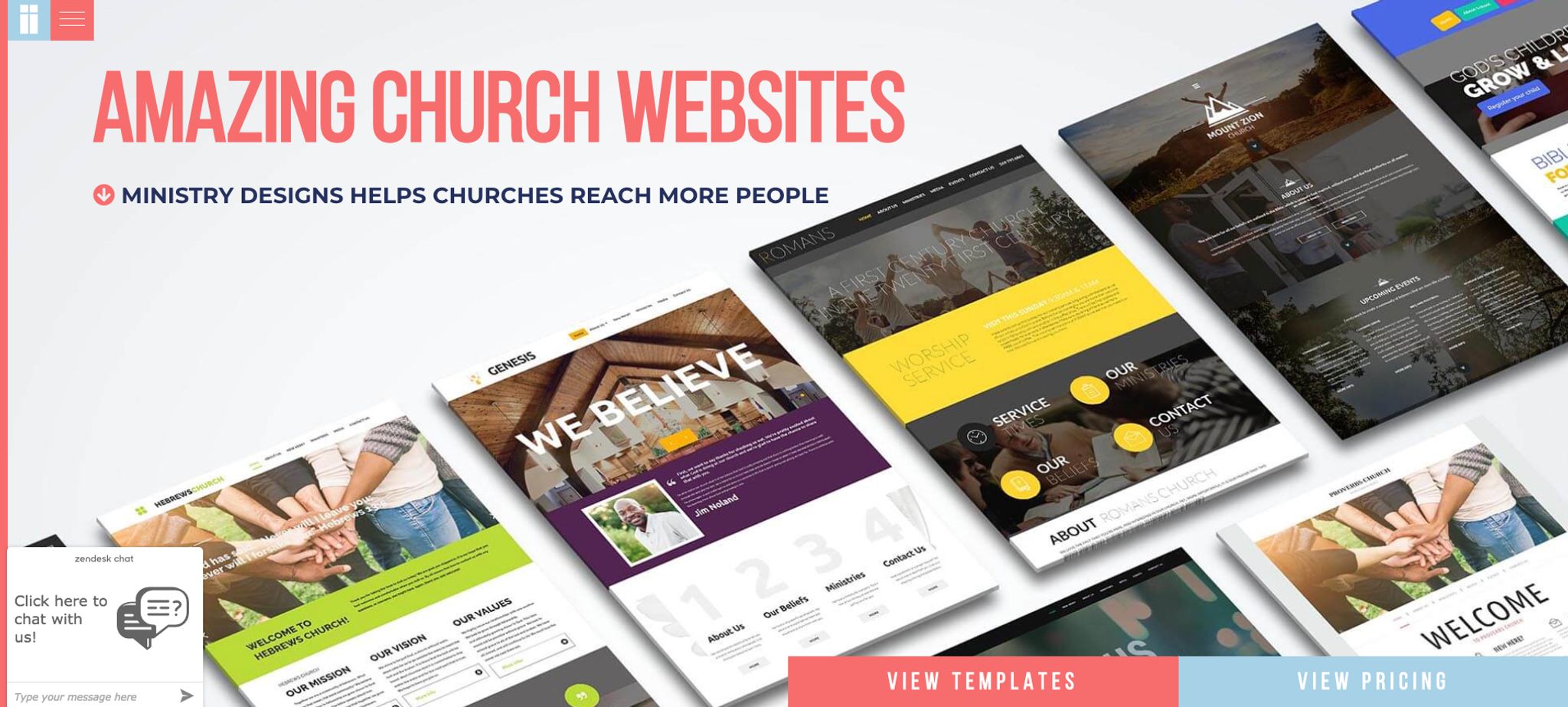
If you’re a church leader, you might be familiar with the classic, hair-pulling madness of trying to get a well functioning website working for your church.
There are so many factors to consider! How is it going to look? How will it be laid out?
What information should you even put up there once you have a site? Upcoming events? Audio of your sermons? Videos of your sermons? A live stream of your Sunday service? The possibilities are endless …but so is that headache, right?
If you feel like you just need a hand getting everything done so you can get back to your sermon prep, you’re not alone. There are literally thousands of pastors and church leaders out there looking for a quick and easy way to streamline the online part of their church …while still keeping it relevant.
After all, we practically live online these days, don’t we? After all you probably hopped onto Google and typed in a few search terms to find this post in the first place, right?
And if any potential future congregants are ever going to find your church, chances are higher than ever that they’re going to do so in a very similar way.
Fortunately, there are quite a few church website builders out there that are specifically devoted to supporting church websites with their specific needs.
Finding a good church website builder
When searching for a Faith-based CMS provider (that’s basically the shorthand for a website builder) for your church, you’re going to want to look for more than just the tools they offer.
For example, you’re also going to want a provider that can cater to the specific needs of your church with of course the most important need being easily-available support for non technical users.
With that in mind, we’ve gone ahead and organized a list of our top CMS providers that have met three criteria:
- They’re popular church website builders
- They provide good service
- They’ve demonstrated an understanding of the needs of the church
Here is the list, ranked in order of companies considered to provide the best church websites.
IMPORTANT NOTE: There’s one more bit of additional information that we want to include that can be helpful in the decision-making process. Currently, in the church technology space, the market of individual, stand-alone companies are being rapidly consolidated by a “big fish,” so to speak. We’ve gone ahead and included a handful of the companies that have been purchased by this larger “big fish” company in the list after the two independent ones at the top because some of these subsidiary companies still provide their own, unique website builders. However, be aware that often quick acquisitions and employee consolidation of companies with decent products can lead to a lack of technical support, (which is one of our three major criteria!).
Alright, on to the website builders!
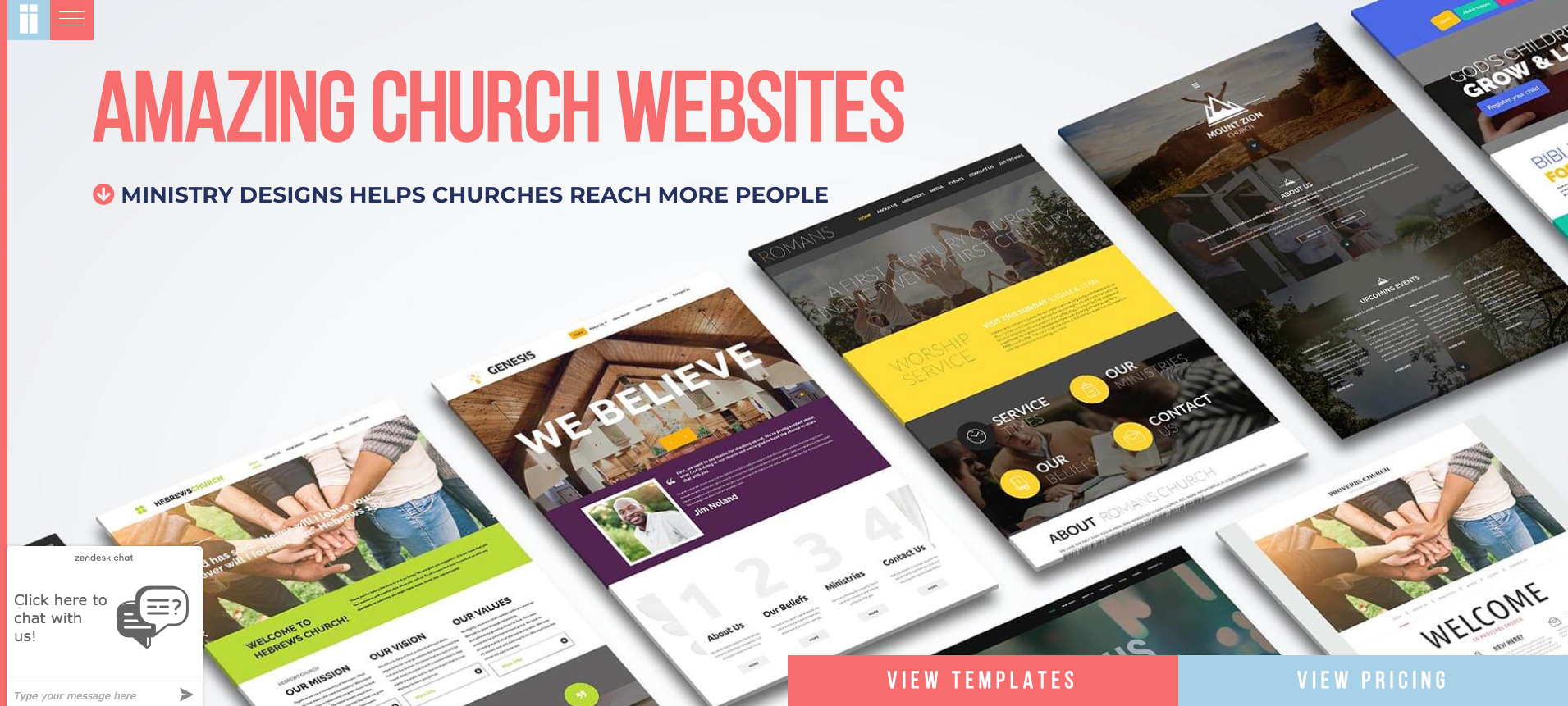
The number one solution, head and shoulders above the rest, is Ministry Designs. Ministry Designs not only has the most intuitive and comprehensive church website builder (CMS) but they also have all of the features you need to make sure that your website stays up to date. One of the amazing things that they do, that is really outside of the norm for this industry, is roll out monthly updates. They do this to ensure that you’ll never have to buy another website. Additionally, when working with the folks at Ministry Designs, they assign you a customer success representative who will share their screen with you and teach you how to use their tools. When shopping for your new website for your church, you would be making a mistake not considering Ministry Designs first.
FaithConnector:

Our second choice is FaithConnector. Along with Ministry Designs, this is one of the few remaining website builders that is still standing on its own, and for that, we give them both a round of applause.
FaithConnector is another solid company with excellent support and another slew of features that usually means they can get you the site that you’re looking for. Their website builder is good, though their editor is a bit out of date, which is why they land second on our list.
With good support, a solid product, and a host of features, FaithConnector remains one of the few viable options if you’re looking for an independent company that provides good, focused support.
Nucleus:
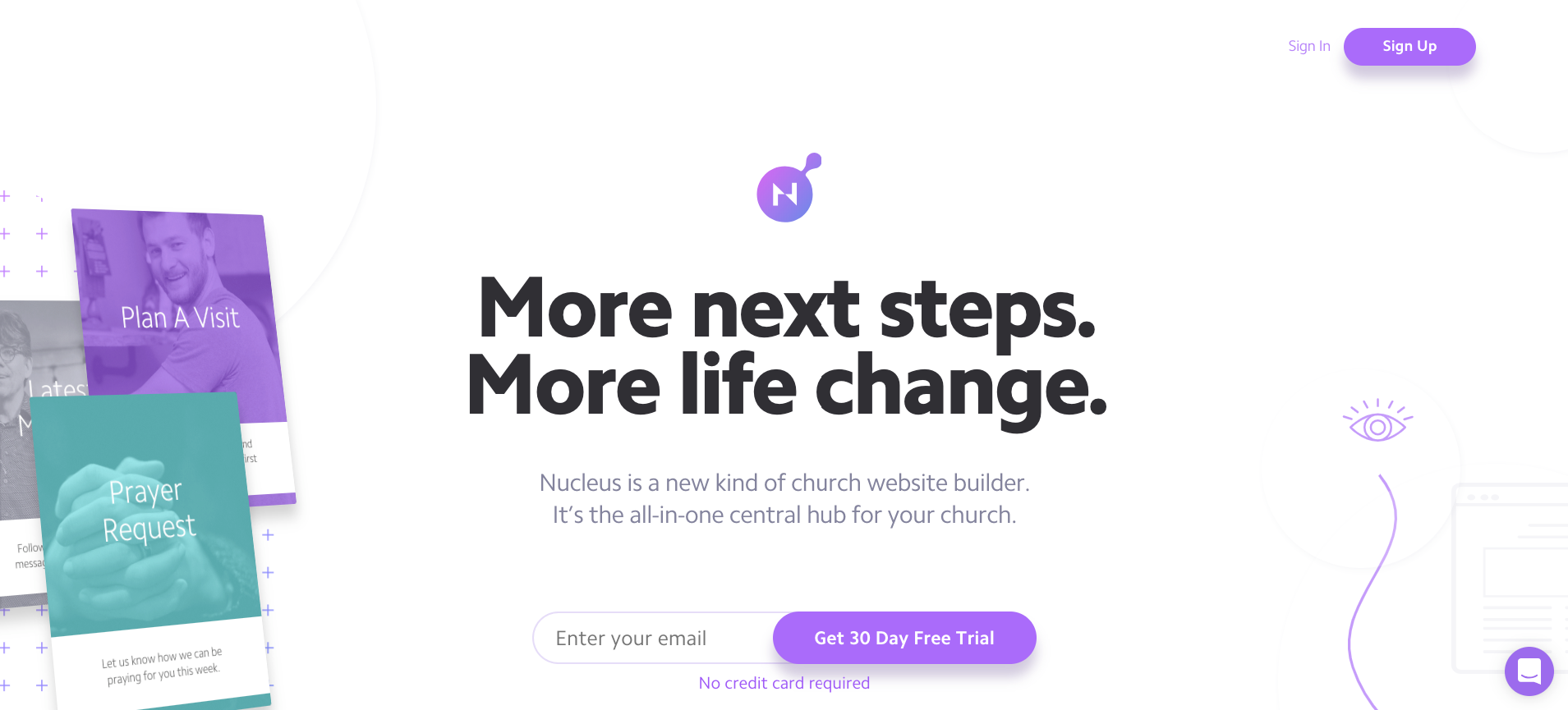
Nucleus is a relative newcomer to the conversation but has gained some popularity, in large part to some excellent marketing. After reviewing the website editor, I’ve found it bit limited next someone of the other companies on the list. Nucleus has positioned and priced itself as a church “hub,” but the facts are after reviewing it, it's missing some critical flexibility and options that the featured companies on this list offer. Plus, at $99 a month it’s pretty expensive.
Note: The remainder of the list is made up of companies that have been bought out in recent years. While they are now subsidiaries of a larger organization, these candidates have managed to retain at least a portion of their website building capabilities, though long-term technical support has become a concern.
Sharefaith:

toward helping churches build their websites. But — and this is a big but — they’ve built their tools to be an overlay of WordPress.
While this might not be an issue for a tech-savvy website builder, if you’re from a church that lacks those “technical gurus,” this can present a whole bunch of problems. A system built on top of another system is always a bit nerve-racking, and with the potential to lose good customer support in the future, the ShareFaith website builder has become a bit suspect at this point.
Clover Site:
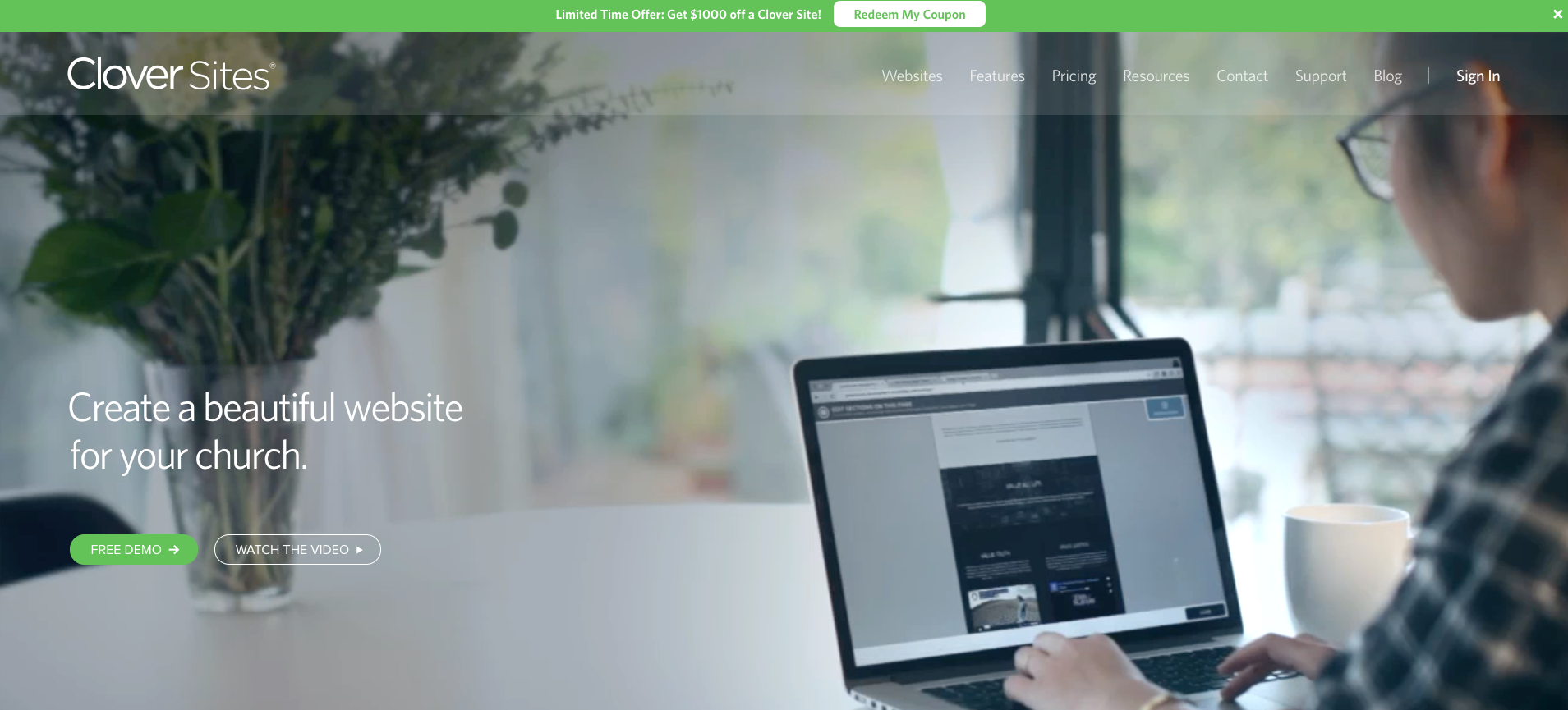
You’ve got to give credit where credit is due, and in this case, it’s honoring an industry pioneer.
Clover was at one point was the leader in the church-specific CMS industry.
Unfortunately, though, that day of prominence has come and gone. At this point, Clover lacks the flexibility needed to really personalize and customize your website. That, in addition to the whole selling out to a larger company bit, has landed them further down the list.
Ekklesia360:
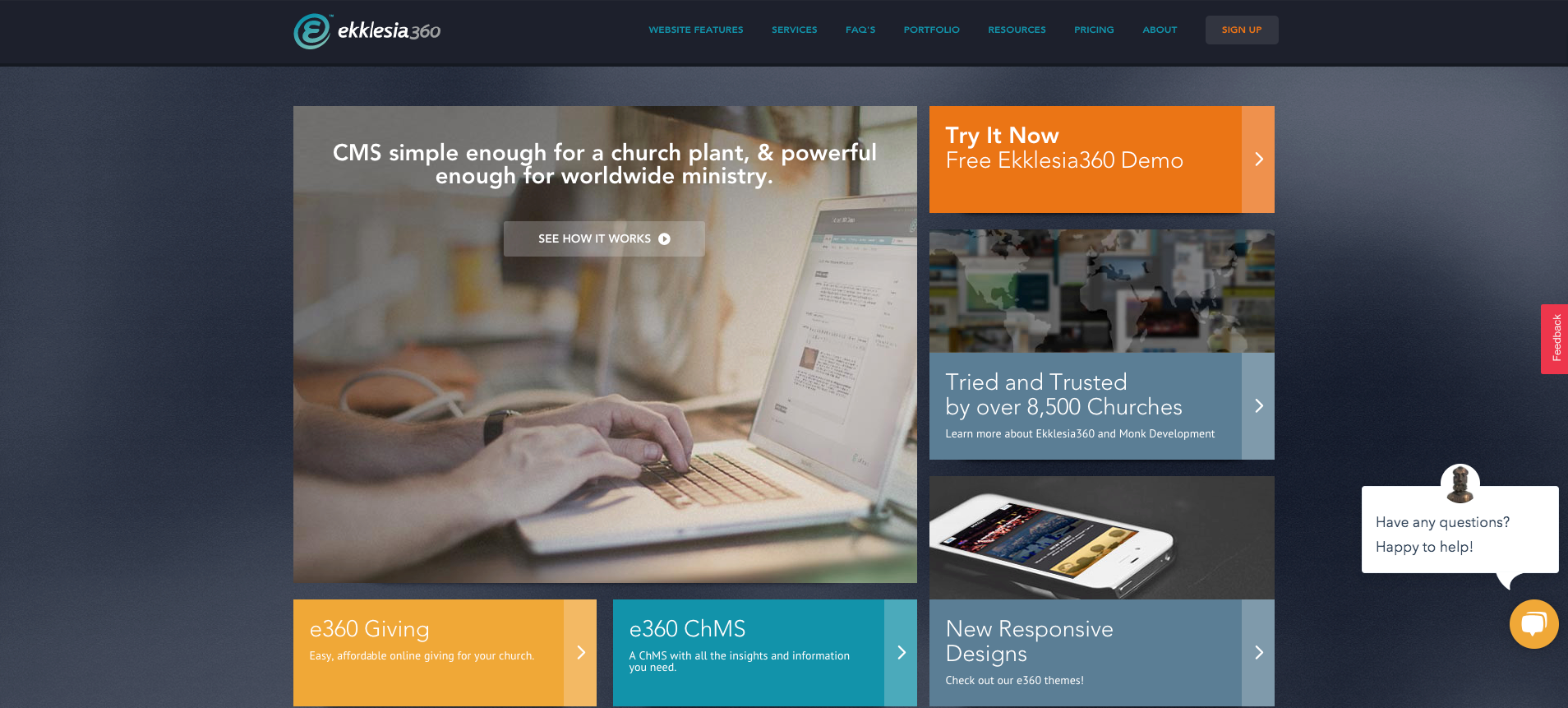
company’s willingness to make changes to their CMS, literally customizing the features they offered on a case by case basis for their customers.
This might sound good on the surface, but before you start jumping for joy, the problem in connection to this adaptability that we found quickly presents itself is affordability. Changes on the kind of scale we’re talking about aren’t minor, and that extra cost puts them out of reach for most church’s budgets.
In addition, we found that their website editor is sadly out of date, a bit clunky, and difficult to work with.
Thrive CMS:
If you're wondering what Thrive CMS is, you're not alone.
Thrive is the website editor solution that the a larger consolidation company created as their own website builder. It has been pushing most of its brands to use this new CMS, and Bridge Element, Site Organic, and Ezekiel are now all selling the Thrive CMS solution.
One question that we couldn’t manage to answer was why it was priced differently across those brands.
Pricing aside, from what we could tell, the solution is limited and a bit hard to work with; however, it does seem to be a bit better than what these established brands had before.
A final note:
Although this list of the best church website companies isn’t comprehensive, we felt like the options listed above were the best in the market that target churches.
While Ministry Designs clearly topped the list with their high-end website builder, impressive features, and excellent customer service, the truth is there really are still quite a few choices out there, so take your time and look into each option to find the one that works best for you.
Whatever you do end up choosing to go with, we always recommend not just researching, but actually demoing any of these CMS solutions before signing up in order to see which one meets the specific needs of your church the best.